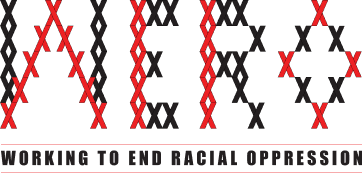The Racism and Inequality in Employment theme explores inequality in employment and the operation of racism in jobs, incomes, recruitment and working experiences. The theme incorporates analysis of census and administrative data alongside qualitative research on the experience of seeking employment and the impacts of racism, the preferences of employers in different industries, and the way in which privilege is embedded in migration policy.
Measuring Income and Employment Inequality by Ethnicity
This theme on employment begins with the project Measuring Income and Employment Inequality by Ethnicity, which analyses income and employment disparities by ethnicity, drawing on census and administrative data. The project aims to provide evidence of within- and between-group distributional changes in patterns of income, as well as evidence of sorting into jobs within and across groups. We will examine whether the wages paid to different ethnic groups are commensurate with their contribution to production. Examining different dimensions of labour market inequality (by age, education, and location) will improve our understanding of the extent to which labour market inequalities reflect and perpetuate inequalities and racism outside the labour market.
Durable Inequalities
Building on insights into the extent of inequalities between ethnic groups, the two-year Durable Inequalities project focuses on analysis of linked census and administrative datasets to explore the transmission of income and employment inequalities over time, including in relation to ethnicity and intergenerational inequality. It also explores the emergence and persistence of ethnic inequalities over workers’ working lives, and the achievement of parity for new migrants in Aotearoa New Zealand in comparison to non-migrant employees.
Recruitment and Employer Preferences
Recruitment and Employer Preferences is a qualitative project that will look at the way in which racism operates in recruitment systems, and people’s experiences of racism when seeking employment. The research will focus on the experiences of different communities, occupations and industries, examining recruitment industry practices and employer preferences, alongside job seeking behaviour and the impact of racism.
Privilege and Preferential Treatment
Privilege and Preferential Treatment in Immigration examines how racism shapes immigration selection and its effects for people of different nationalities, genders and occupations. The project will include a qualitative analysis of the visas available to different nationalities and how selection criteria for work, partnership and residence visas privilege some nationalities. There will also be a discourse analysis examining the rationales used to justify preferential immigration criteria. Qualitative research will be accompanied by quantitative analysis of immigration data examining the differential progression of temporary migrants towards permanent residence by nationality, gender and occupation, and the implications this has for legal, social, health and wellbeing outcomes for migrants. The study will demonstrate whether and to what extent the immigration system favours some nationalities over others and the impacts this has on the rights and long-term presence of people from different nationalities/ethnicities in Aotearoa New Zealand.
Cumulatively, these projects on Racism and Inequality in Employment aim to identify key patterns of racism and their effects. With partners, it will build the insights and tools needed to challenge persistent racism that lead to unequal outcomes in employment.
